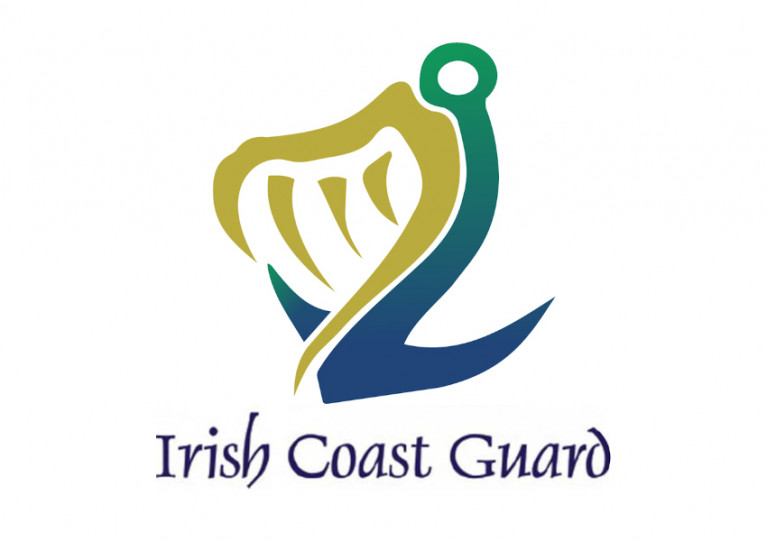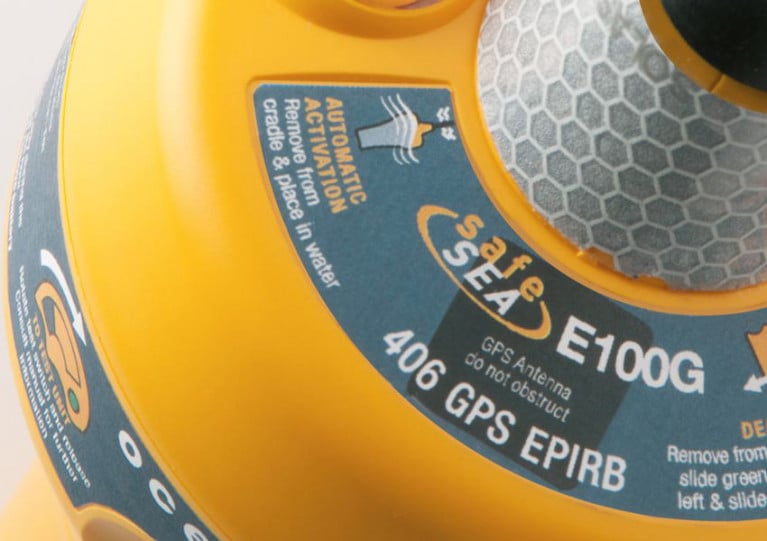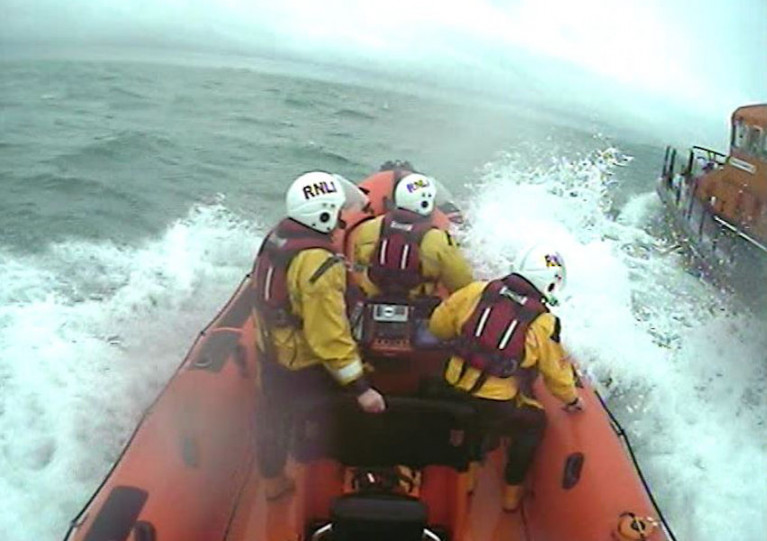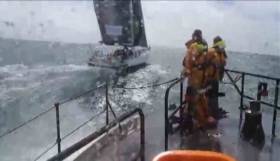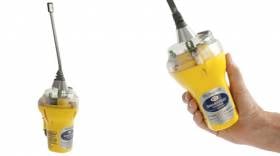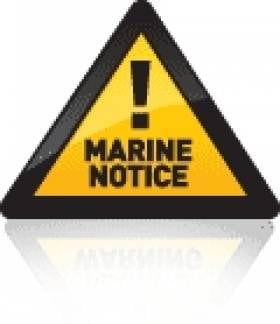Displaying items by tag: EPIRB
Reminder for Mariners Over Regulations for Use of EPIRBs
The Department of Transport’s latest Marine Notice is a timely reminder for mariners over the regulations regarding the use of emergency position-indicating radio beacons (EPIRBs).
Last month saw the launch of a new online ship radio licence and EPIRB registration system, as previously reported on Afloat.ie, which replaces the prior paper form and email application processes.
Mariners purchasing second-hand vessels from outside the State are reminded that they must ensure their onboard EPIRBs are correctly registered. The correct registration, testing, regular maintenance and licensing of all EPIRB equipment installed on any vessel at sea is of high importance.
Other notices of relevance are linked in Marine Notice No 81 of 2022, attached below.
New Online Ship Radio Licence and EPIRB Registration System
The Department of Transport advises that a new online ship radio licence and EPIRB registration system is being implemented as of Monday 17 October.
This system replaces the paper form and email application processes and is be available at the online portal for the Irish Maritime Radio Licence System (IMRAD).
A ship radio licence is required under national and international legislation to certify that a vessel may operate approved radio communication equipment on specific maritime radio frequency bands and is also necessary for the assignment and recording of unique vessel radio communication maritime identifiers such as callsigns and MMSI numbers.
The registration of EPIRBs (Emergency Position Indicating Radio Beacon) carried on board Irish vessels is also mandatory.
These licensing and registration processes are coordinated internationally to protect maritime safety-related communications worldwide and to facilitate and support distress, safety and search-and-rescue operations.
This new online system provides users with a convenient means to fulfil these licensing and registration obligations.
In addition to the regulatory requirements, the effectiveness of maritime radio equipment including EPIRBs for search-and-rescue communications depends upon correct identification, encoding, programming and registration of devices.
The Irish Coast Guard relies upon the information contained in this system for search-and-rescue operations to quickly identify vessels and to obtain emergency contact information. This information is also used to quickly resolve inadvertent distress alert activations so that search-and-rescue resources are deployed effectively and not to false alerts.
It is therefore essential that up-to-date and accurate vessel and contact details are recorded in this system. The information is also provided to the ITU international MARS database system for notification to other maritime administrations worldwide.
For full details see Marine Notice No 70 of 2022, attached below.
Clifden Lifeboat Carries Out Search in Extreme Wind and High Seas for Emergency Signal
The volunteer crew of Clifden RNLI were requested to conduct a search operation in response to an EPIRB signal eight miles west of the Connemara town in what was one of their “most challenging” callouts in some time.
EPIRB is a device carried on vessels to alert search and rescue services in case of an emergency out at sea.
The lifeboat crew launched their Shannon Class all-weather lifeboat at approximately 10.20am yesterday (Tuesday 22 Feburary) into extremely strong winds and heavy seas.
Despite a Force 8 wind and seven-metre swell, a full search of the area west of Turbot Island was carried out by the volunteer crew.
Thankfully, no evidence of a vessel in distress was found in the area and the operation was stood down by the Irish Coast Guard at midday.
Nessa Joyce, Clifden RNLI’s deputy launch authority, said: “In terms of weather, this operation was one of the most challenging we have dealt with in a while.
“It was a successful operation and a testament to both the training of our crew and safety and reliability of our rescue craft.
“All-weather lifeboats are made for conditions like this and everyone in Clifden RNLI is really looking forward to bringing a brand new Shannon Class ALB into service later this spring. My thanks to the crew for braving the weather today to ensure a successful outcome.”
The operation was carried out by John Mullen (coxswain), Tom Davis, Owen Hayes, James Mullen, Andy Bell and Kenneth Flaherty.
More Details Emerge Over Emergency Beacon Incident Off West Cork Last Month
The Irish Coast Guard has revealed further details over an incident involving the activation of an emergency positioning beacon off West Cork last month.
As previously reported on Afloat.ie, Baltimore RNLI was called out to search or the EPIRB which activated two nautical miles west of the Calf Islands on the afternoon of Wednesday 19 August.
Despite an extensive operation which also involved Schull Coast Guard, a coastguard helicopter and the Naval Service vessel LÉ Samuel Beckett, nothing was found and the search was stood down by early evening.
‘…it is highly unusual to have detections of the type that was encountered on 19 August’
In response to further enquiries from Afloat.ie, the Irish Coast Guard said the EPIRB in question, which was last detected at Coosnagulling on the southwest of Long Island, “did not appear to be fully functional and the homing signal was not active.
“It was not registered in Ireland and registration details were not available. It was not of Irish origin.”
Confirming that the search was terminated with “no further action being deemed necessary”, the IRCG added: “Accidental activations of EPIRBs are not unusual but it is highly unusual to have detections of the type that was encountered on 19 August.
“Every effort was made to locate the device both inland and on the coast but as outlined above, the search proved to be unsuccessful given the operational gaps in the information that was available.”
Owners of the Ocean Signal SeaSafe E100 or E100G emergency radio beacons are reminded to perform their unit’s self-test function as soon as possible.
The manufacturer says all of its EPIRBs should be routinely tested on a monthly basis, as per the user manual.
All Ocean Signal beacons are designed to have sufficient capacity to accommodate a monthly self-test over the lifetime of the battery.
However, for those beacons that do not pass the self-test, an exchange process is being offered for affected units.
Details on how to perform the self-test — and seek a replacement if necessary — are detailed in Marine Notice No 29 of 2020 attached below.
First Callout Of 2020 For Skerries Lifeboat In Launch To Emergency Beacon
The first time this year that pagers sounded for the volunteers of Skerries RNLI may have ended in a false alarm.
But the crew of the North Co Dublin lifeboat station confirms it takes any activation of an emergency beacon seriously.
Skerries RNLI were tasked shortly before 7.30am yesterday morning (Monday 24 February) after Dublin Coast Guard picked up the signal from an emergency beacon almost two miles north-east of Skerries.
The Atlantic 85 inshore lifeboat was launched by the volunteer crew into strong west to south-west winds, gusting to 30 knots at times.
Skerries lifeboat, the Howth lifeboat and the Irish Coast Guard’s helicopter Rescue 116 all proceeded to the last co-ordinates received and began a thorough search of the area in challenging conditions.
It was soon found that the vessel registered to the EPIRB (emergency position-indicating radio beacon) was safely tied up in Skerries Harbour, but the EPIRB had been removed.
The lifeboats and the helicopter continued to search the area until the coastguard was satisfied that the beacon had not been taken to sea aboard another vessel, and the operation was stood down.
Speaking about the callout, volunteer lifeboat press officer for Skerries RNLI, Gerry Canning, said: “EPIRBs are a vital piece of safety equipment, often designed to activate when a vessel capsizes or sinks, so any activation has to be treated very seriously.
“It was a wet morning for most people today, but even more so for our crews.”
Rosslare Harbour RNLI all weather was launched by the volunteer lifeboat crew yesterday morningat 11.45am to respond to an EPIRB distress signal (Emergency Position Indicating Radio Beacon).
The Irish Coast Guard alerted Rosslare Harbour RNLI to immediately launch following an EPIRB alarm, which usually indicates a vessel in serious danger. The signal was traced to an 18m yacht close to Carnsore Point off the Wexford coast, which was competing in the offshore Normandy Channel yacht race, as reported by Afloat.ie here.
The RNLI lifeboat and Coast Guard helicopter Rescue 117 were quickly on the scene. It was soon established that the 18m yacht was not in trouble and the EPIRB alarm had accidentally activated. Volunteer RNLI crew aboard Rosslare Harbour lifeboat deactivated the alarm system, returned the device to the yacht which then continued on with its race.
Conditions at the time were reasonably favourable with a brisk southerly wind.
Speaking after the incident Rosslare Harbour RNLI Volunteer Lifeboat Press Officer Jamie Ryan praised the skill of the coxswain who brought the lifeboat alongside the yacht and the efforts of the RNLI volunteers who fixed the EPIRB and returned it to the 18m yacht.
Marine Notice: Top Dome Replacements for McMurdo EPIRBs
#EPIRB - Marine Notice No 9 of 2017 contains a product advisory for two EPIRB products manufactured by McMurdo.
Under certain circumstances, signs of cracking may appear in the top dome cases of all versions of the McMurdo SmartFind EPIRB and the Kannad Marine EPIRB Sport, Sport Pro and Sport Pro + models.
This cracking area is outside of the waterproof seal and as such does not compromise the integrity of any affected unit.
McMurdo recommends that any such unit “should be subject to rectification work at the earliest opportunity” and provides support details for any in-warranty units in the Marine Notice, available to read or download HERE.
Recall Notice For Kannad SAFELINK Global EPIRB
#Recall - The Department of Transport, Tourism and Sport (DTTAS) advises that Kannad Marine, the manufacturer of Kannad SAFELINK EPIRBS, have issued a Global Recall Safety Notice for the following affected EPIRB units:
- EPIRB SAFELINK Manual+ GPS (part no K1202311)
- EPIRB SAFELINK Auto GPS (part no K1202367)
For further information please see the annex attached to Marine Notice No 2 of 2016, a PDF of which is available to read or download HERE.
#epirb – The Department of Transport, Tourism and Sport advises it has been informed that Standard Communications Pty Ltd, the manufacturer of GME EPIRBs, have issued a Product Safety Recall of the following affected EPIRB units:
GME MT400/MT401/MT403 EPIRBs with serial numbers between 50101000 and 80250722.
For further information please see the attached notice below.


























